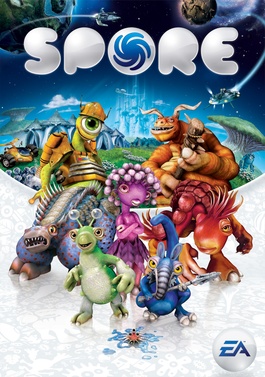RPS verdict: The Fallout TV Show season 2
2 hours ago




 Defraggler helps some of the problems but seems to have its own oddities. I downloaded, installed, and ran it on two computers at work – no problem. It seems less resource intensive than Norton or Microsoft’s Defragment program. I used it on a laptop and computer running XP, the laptop is older than 2004 while the computer has those sticks of RAM that are as long as your arm. 2002, maybe? Either way, I was able to work on them while the program ran with no slow down, and for both (26% and 31% fragmentation) it took about 2-3 hours to complete.
Defraggler helps some of the problems but seems to have its own oddities. I downloaded, installed, and ran it on two computers at work – no problem. It seems less resource intensive than Norton or Microsoft’s Defragment program. I used it on a laptop and computer running XP, the laptop is older than 2004 while the computer has those sticks of RAM that are as long as your arm. 2002, maybe? Either way, I was able to work on them while the program ran with no slow down, and for both (26% and 31% fragmentation) it took about 2-3 hours to complete.  This is part two of a two-part review of Mirror’s Edge and contains many spoilers. Read Part 1 for general thoughts.
This is part two of a two-part review of Mirror’s Edge and contains many spoilers. Read Part 1 for general thoughts.

 This is part one of a two-part review of Mirror’s Edge and contains no spoilers while part two refers to specific events and situations within the game.
This is part one of a two-part review of Mirror’s Edge and contains no spoilers while part two refers to specific events and situations within the game. 


 I hope everyone had a wonderful weekend. I had a birthday, bought a new pair of ninja booties, went dirt bike riding, and puked in the woods. Heat stroke is not fun! And yes, I did drink plenty of water.
I hope everyone had a wonderful weekend. I had a birthday, bought a new pair of ninja booties, went dirt bike riding, and puked in the woods. Heat stroke is not fun! And yes, I did drink plenty of water.  I’m taking the Ages in the order their principles appeared in Atris’ journal, so Edanna, the nature age, is next. It’s the one that interests me most conceptually, but aggravates me most in execution. The idea here is to show the player the interdependence within nature both within the environment and through the interaction of the player with the bird (the player first saves the bird and at the end of the Age the bird flies the player to end of the puzzle.) Color is an important indicator within Exile. As in nature, something brightly or vibrantly colored indicates you should pay attention to it.
I’m taking the Ages in the order their principles appeared in Atris’ journal, so Edanna, the nature age, is next. It’s the one that interests me most conceptually, but aggravates me most in execution. The idea here is to show the player the interdependence within nature both within the environment and through the interaction of the player with the bird (the player first saves the bird and at the end of the Age the bird flies the player to end of the puzzle.) Color is an important indicator within Exile. As in nature, something brightly or vibrantly colored indicates you should pay attention to it. 
 Count Alessandro Giuseppe Antonio Anastasio Volta (CAGAAV to his friends), invented the voltaic pile, what we call the battery. He lent his last name to his invention, as well as the volt, Voltron: Defender of the Universe, and the Voltaic Age in Myst III Exile. We can only wonder which of these he’d be most proud of, though I have to say that Defender of the UNIVERSE is damned impressive.
Count Alessandro Giuseppe Antonio Anastasio Volta (CAGAAV to his friends), invented the voltaic pile, what we call the battery. He lent his last name to his invention, as well as the volt, Voltron: Defender of the Universe, and the Voltaic Age in Myst III Exile. We can only wonder which of these he’d be most proud of, though I have to say that Defender of the UNIVERSE is damned impressive. 



 Last night, I zipped through Riven at phenomenal speeds until the game crashed and I realized I hadn’t saved since the first island. I restarted, it forced me to start a new game, and then wouldn’t let me open the saved game. I believe I’ve had this problem since I bought it as I knew the solution was to go to the saved game file in the Riven folder and double click it. I then played until the puzzle island where you first encounter the grid. In the past I mapped out the location of the golden balls with graph paper – I have no idea why as a simple X,Y coordinate system notation does the trick.
Last night, I zipped through Riven at phenomenal speeds until the game crashed and I realized I hadn’t saved since the first island. I restarted, it forced me to start a new game, and then wouldn’t let me open the saved game. I believe I’ve had this problem since I bought it as I knew the solution was to go to the saved game file in the Riven folder and double click it. I then played until the puzzle island where you first encounter the grid. In the past I mapped out the location of the golden balls with graph paper – I have no idea why as a simple X,Y coordinate system notation does the trick. 
 I have a head cold and the antihistamines I took keep have me nodding off. I have three different topics I’d like to talk about and hardly enough energy for one. I’ll go with a topical one: Spore.
I have a head cold and the antihistamines I took keep have me nodding off. I have three different topics I’d like to talk about and hardly enough energy for one. I’ll go with a topical one: Spore. 

 As I plunge headfirst into the rushing waters of the c-game meta community, I’ve grabbed almost every site and blog I could think of and made an effort to watch, read, and sometimes comment. Yesterday, I left two comments on the That Video Game Blog: one on how exclusive like a new Final Fantasy game is what’s propelling the Nintendo’s DS ahead of the Sony PSP and another in praise of an increase in girl gamers in the last year.
As I plunge headfirst into the rushing waters of the c-game meta community, I’ve grabbed almost every site and blog I could think of and made an effort to watch, read, and sometimes comment. Yesterday, I left two comments on the That Video Game Blog: one on how exclusive like a new Final Fantasy game is what’s propelling the Nintendo’s DS ahead of the Sony PSP and another in praise of an increase in girl gamers in the last year. 

